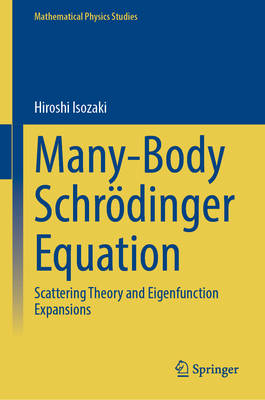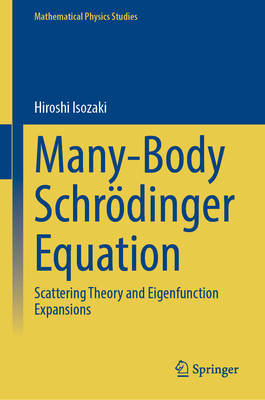
- Retrait gratuit dans votre magasin Club
- 7.000.000 titres dans notre catalogue
- Payer en toute sécurité
- Toujours un magasin près de chez vous
- Retrait gratuit dans votre magasin Club
- 7.000.0000 titres dans notre catalogue
- Payer en toute sécurité
- Toujours un magasin près de chez vous
259,45 €
+ 518 points
Description
Spectral properties for Schrödinger operators are a major concern in quantum mechanics both in physics and in mathematics. For the few-particle systems, we now have sufficient knowledge for two-body systems, although much less is known about N-body systems. The asymptotic completeness of time-dependent wave operators was proved in the 1980s and was a landmark in the study of the N-body problem. However, many problems are left open for the stationary N-particle equation. Due to the recent rapid development of computer power, it is now possible to compute the three-body scattering problem numerically, in which the stationary formulation of scattering is used. This means that the stationary theory for N-body Schrödinger operators remains an important problem of quantum mechanics. It is stressed here that for the three-body problem, we have a satisfactory stationary theory. This book is devoted to the mathematical aspects of the N-body problem from both the time-dependent and stationary viewpoints. The main themes are: (1) The Mourre theory for the resolvent of self-adjoint operators(2) Two-body Schrödinger operators-Time-dependent approach and stationary approach(3) Time-dependent approach to N-body Schrödinger operators(4) Eigenfunction expansion theory for three-body Schrödinger operatorsCompared with existing books for the many-body problem, the salient feature of this book consists in the stationary scattering theory (4). The eigenfunction expansion theorem is the physical basis of Schrödinger operators. Recently, it proved to be the basis of inverse problems of quantum scattering. This book provides necessary background information to understand the physical and mathematical basis of Schrödinger operators and standard knowledge for future development.
Spécifications
Parties prenantes
- Auteur(s) :
- Editeur:
Contenu
- Nombre de pages :
- 399
- Langue:
- Anglais
- Collection :
Caractéristiques
- EAN:
- 9789819937035
- Date de parution :
- 28-07-23
- Format:
- Livre relié
- Format numérique:
- Genaaid
- Dimensions :
- 156 mm x 234 mm
- Poids :
- 762 g

Les avis
Nous publions uniquement les avis qui respectent les conditions requises. Consultez nos conditions pour les avis.






